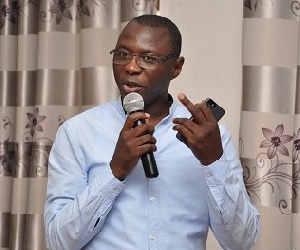Executive Director of the Africa Center for Energy Policy (ACEP), Dr. Mohammed Amin Adam has called on Ghanaians to hold government to its promise to end the current power crisis.
According to him, government’s plans about a long-term solution to the energy crisis in the next five years should encourage Ghanaians to mount pressure on them and ensure that they deliver on their promise.
Dr Adam made this known at a workshop last Friday in Accra to educate journalists on the issue of corruption in the oil and gas sector and how contracts in that sector are handled, among others.
“Governance is about social contracts. You give them power and you hold them to their promise. The president stood in parliament during the State of the Nation Address and announced about 3,800 megawatts of power he wants to bring in after five years. I beg Ghanaians lets demand accountability. We will not be given excuses in the next five years while we are still in power crisis,” he told a team of journalists at the workshop.
He added that the power crisis would only become a thing of the past if government makes the necessary investment to find other sources of energy and stop relying on Akosombo hydroelectric dam.
“As far as we continue to rely on plants that break down all the time and switch between gas and light crude oil, I say that the energy problem will not be solved. We can manage it, but we cannot solve it without the necessary investment that we need to move away from Akosombo to bring in fuel-efficient plants and more generation capacity. Governance is about social contracts. You give them power and you hold them to their promise,” the ACEP boss stated.
Earlier this year, the NDC administration announced plans to procure two power barges from Turkey that would generate about 450 megawatts as part of short-term measures to help stabilize the situation.
The workshop brought together journalists from various media houses, as well as Journalist Against Corruption (JAC), a network formed by Ghana Anti-Corruption Coalition (GACC).
General News of Tuesday, 19 May 2015
Source: Daily Guide













